Etude d’un variant génétique controllant la fonction thymique chez l’homme
Responsable du Stage : Grégoire Martin
Tél : 06 01 87 05 84 Fax : 01 42 11 53 42 E-mail: gregoire.martin@gustaveroussy.fr
Institut Gustave Roussy
Résumé du Projet de Stage
Nearly 8% of our genome is composed of sequences of retroviral origin (ERVs, endogenous retroviruses). These are mainly repressed outside specific contexts such as placenta formation or certain diseases, including cancer. In tumors, specific ERVs can be upregulated due to epigenetic modifications linked to defects in DNA repair pathways. The absence of expression of most ERVs in healthy tissues or their expression in organs protected from the immune system such as placenta and testis make them potential targets of the immune system. This new « Achilles heel » may be of particular importance in cancer therapies as (i) ERV envelope proteins expressed on cancer cell surface that are targetable by CAR-T cells, oncolytic viruses or antibody drug conjugates (Lemaitre et al., 2017; Heidmann et al., 2017), (ii) MHC-I-restricted epitopes that can induce CD8 T cells and anti-tumor responses, e.g. NCT03354390 clinical trial targeting an ERV-E4 epitope in kidney cancer clear cells (Cherkasova et al., 2016,) and (iii) ERV double-strained RNA (via RIG-1 and MDA5; Chiappinelli et al., 2015; Roulois et al., 2015; Fresquet et al., 2021) and/or ERV extra-nuclear DNA (via cGAS/STING; Lima-junior et al., 2021) that induce type I interferon responses.
VIROxIS is a biotech company that works jointly with the UMR CNRS 9196 Physiology and physiopathology of endogenous and infectious retroviruses directed by O. Heidman. As a company hosted by Gustave Roussy, VIROxIS’ research is part of the medical activities dedicated to cancer patients without therapeutic solutions. In this context and in collaboration with physicians from the Department of Therapeutic Innovation and Early Stage Trials (DITEP), our work focuses on the antigenic properties of ERVs in tumors. We are looking for drugs already approved in human medicine that could induce ERVs in tumor cells.
During the Master2 internship, the successful candidate will perform high throughput drug screening experiments (drug discovery platform of the Gustave Roussy Institute). The discovered drugs as well as those already identified will be evaluated in tumor cells/organoid deriving from patients. Drug-induced ERV/epitopes will be characterized. In addition, antibodies directed against ERV envelope proteins and/or epitopes from ERVs will be obtained through our collaboration with the nanobody and VHH platform of the Curie Institute. This internship will involve cytometry, transcriptomics, molecular biology and cell culture techniques. We are looking for a very dynamic, committed and rigorous student who wishes to work in the field of applied cancer research.
Dernières Publications en lien avec le projet :
Lemaître C, Tsang J, Bireau C, Heidmann T, Dewannieux M. A human endogenous retrovirus-derived gene that can contribute to oncogenesis by activating the ERK pathway and inducing migration and invasion. PLoS Pathog. 2017 Jun 26;13(6):e1006451.
Heidmann O, Béguin A, Paternina J, Berthier R, Deloger M, Bawa O, Heidmann T. HEMO, an ancestral endogenous retroviral envelope protein shed in the blood of pregnant women and expressed in pluripotent stem cells and tumors. Proc Natl Acad Sci U S A. 2017 Aug 8;114(32):E6642-E6651.
Lemaître C, Harper F, Pierron G, Heidmann T, Dewannieux M. The HERV-K human endogenous retrovirus envelope protein antagonizes Tetherin antiviral activity. J Virol. 2014 Dec;88(23):13626-37.
Schlecht-Louf G, Renard M, Mangeney M, Letzelter C, Richaud A, Ducos B, Bouallaga I, Heidmann T. Retroviral infection in vivo requires an immune escape virulence factor encrypted in the envelope protein of oncoretroviruses. Proc Natl Acad Sci U S A. 2010 Feb 23;107(8):3782-7.
Ce projet s’inscrit-il dans la perspective d’une thèse :
oui X CIFRE Viroxis
ED d’appartenance : Ecole doctorale de cancérologie ED418
FicheaccueilM2-BMC-2021-2022 (3)
Equipes d’Accueil : Retrovirus endogènes et cancers
Intitulé de l’Unité : Viroxis/UMR CNRS 9196
Nom du Responsable de l’Unité : Anne-Catherine Jouanneau/Odile Heidmann
Nom du Responsable de l’Équipe : Grégoire Martin/Thierry Heidmann
Institut Gustave Roussy 39 rue Camille Desmoulins 94800 Villejuif

